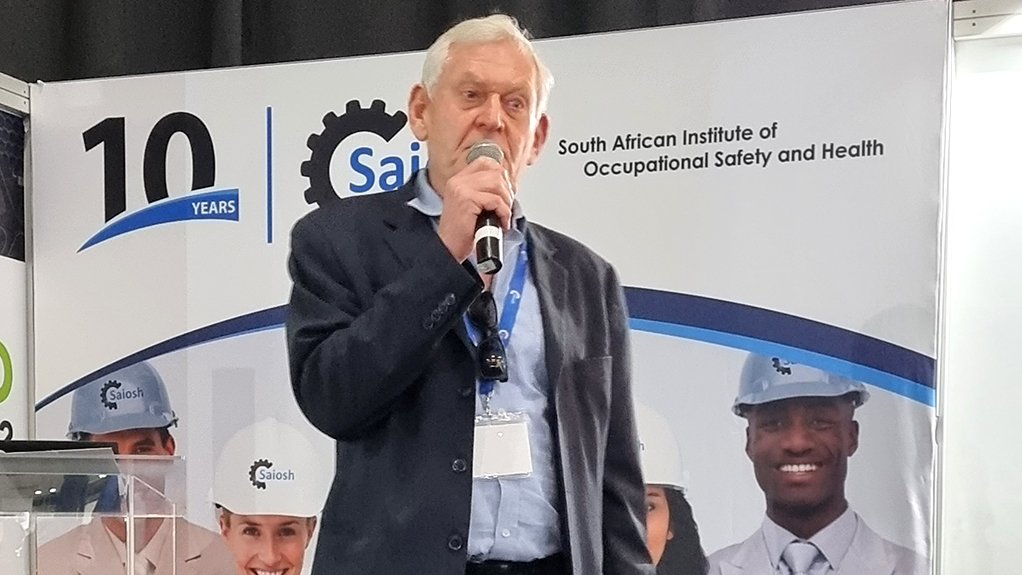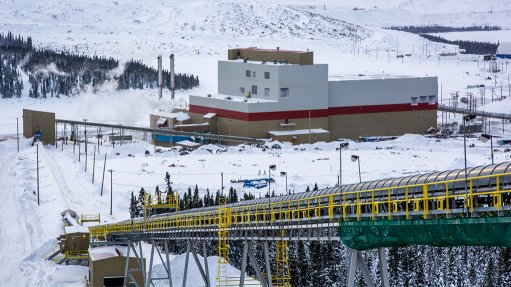Amendment Bill fails to recognise safety practitioner profession



RAYNARD LOOCH Managers and supervisors are an integral and essential part of an employer’s health and safety management system and deserve statutory recognition
CALL FOR FORMAL INVESTIGATIONS The South African Institute of Occupational Safety and Health has proposed that the draft Occupational Health and Safety Amendment Bill be reworked to ensure that all fatal workplace incidents are subject to a formal inquiry
The continued failure to recognise the safety practitioner profession is yet another disappointing aspect of the poorly drafted Occupational Health and Safety (OHS) Amendment Bill 2020, says law firm Klass Looch Associates managing member, advocate Raynard Looch.
“Unlike the Mine Health and Safety Act (MHSA) and even the construction regulations in the current OHS Act, the draft Bill is silent on the aspect of statutory appointments of safety personnel.
“In the MHSA, the appointment of safety officers is obligatory, and the construction regulations provide for the obligatory appointment of a construction health and safety officer who is accredited by the South African Council for the Project and Construction Management Professions.”
Recognised by the South African Qualifications Authority as a professional body with which to register occupational health and safety professionals in South Africa in terms of the National Qualifications Framework Act, 67 of 2008, the South African Institute of Occupational Safety and Health (Saiosh) hoped that the draft Amendment Bill would address this issue.
It remains a mystery why the Department of Employment and Labour (DEL) did not address the vacuum in statutory appointments, as it has been aware of the problems that this vacuum poses for decades, Looch highlights.
Critically, nonmandatory Section 16(2) assigned persons and the CEO which appoints them are usually too far removed from the realities of the workplace to properly discharge their statutory duties without managerial and supervisory assistance, requiring employers to resort to so-called in-house appointments.
“Therefore, managers and supervisors are an integral and essential part of an employer’s health and safety management system and deserve statutory recognition,” states Looch, who served on the technical committee appointed by Saiosh to review and submit comments on the recently published OHS Amendment Bill.
Saiosh has made recommendations to fill the vacuum through the introduction of another statutory appointment for all managers and supervisors in the form of a Section 16(3) appointment, which aligns with UK OHS legislation.
However, this is not the only concern with the OHS Amendment Bill.
“It is riddled with inconsistencies, incorporates legal elements in some provisions which are removed in others, has incoherent penalty schedules and vague definitions, and controversially also seeks to equate the penalties for regulation contraventions, which are promulgated by the Minister of Employment and Labour, with those sections of legislation adopted by Parliament.”
The latter could be argued to be irrational, as purely administrative contraventions and serious injury offences would carry the same maximum penalty of R5-million, he elaborates.
The draft also seems to venture into the realm of strict liability, which has been rejected by all superior courts, suggesting a harsher approach towards the country’s employers.
The yardstick to determine whether an employer has adequately discharged its duties in terms of the OHS Act has, thus, been deliberately deleted in the draft Amendment Bill, holding South African employers to a higher standard than that promoted by the International Labour Organization's Occupational Safety and Health Convention, 1981 (No155), which South Africa has endorsed.
Therefore, should the current version of the Amendment Bill be promulgated, employers will be unable to argue that they did everything within the bounds of reasonability and practicability to avoid incidents.
Ensuring Legislative Compliance
Most of South Africa’s large and bluechip employers have long pre-empted many of the provisions in the draft Amendment Bill by using the current OHS Act only as a minimum standard, notes Looch.
Consequently, they have embraced internationally recognised safety systems and voluntarily allocate large budgets to their safety departments.
“The problem with compliance often rests with small to medium-sized enterprises, dysfunctional municipalities and even public works, and public service providers in general. The DEL, in particular the Minister, who is a political deployee, often uses his platform to decry general compliance levels, in tandem with the Tripartite Alliance, for obvious reasons,” says Looch.
Enforcement of the OHS Act is also an issue, with the DEL usually opting to investigate serious and/or fatal incidents informally without a set of established legal rules, despite the Act providing for formal inquiries where evidence is led and tested along the lines of any commission of inquiry.
Conversely, under the MHSA, fatal mining accidents must be subjected to formal inquiries and cannot be informally investigated.
Thereby, Saiosh has proposed that the draft OHS Amendment Bill be reworked to ensure that all fatal workplace incidents are subject to a formal inquiry.
“This would theoretically provide the National Prosecuting Authority (NPA) with a tested record and/or transcript of evidence to consider in deciding whether to prosecute. In practice, the NPA has no appetite to prosecute OHS incidents, as the OHS Special Courts have either been dissolved or figuratively decimated,” states Looch.
Incidents, such as the Paarl Print fire, in the Western Cape, the Tongaat Mall collapse, in KwaZulu-Natal, and the Grayston Bridge collapse, in Gauteng, never resulted in prosecution, despite damning findings and recommendations by experienced DEL inspectors, he adds.
While the OHS Act does provide for this function to be outsourced, Looch believes that this is hindered by budgetary constraints.
Comments
Press Office
Announcements
What's On
Subscribe to improve your user experience...
Option 1 (equivalent of R125 a month):
Receive a weekly copy of Creamer Media's Engineering News & Mining Weekly magazine
(print copy for those in South Africa and e-magazine for those outside of South Africa)
Receive daily email newsletters
Access to full search results
Access archive of magazine back copies
Access to Projects in Progress
Access to ONE Research Report of your choice in PDF format
Option 2 (equivalent of R375 a month):
All benefits from Option 1
PLUS
Access to Creamer Media's Research Channel Africa for ALL Research Reports, in PDF format, on various industrial and mining sectors
including Electricity; Water; Energy Transition; Hydrogen; Roads, Rail and Ports; Coal; Gold; Platinum; Battery Metals; etc.
Already a subscriber?
Forgotten your password?
Receive weekly copy of Creamer Media's Engineering News & Mining Weekly magazine (print copy for those in South Africa and e-magazine for those outside of South Africa)
➕
Recieve daily email newsletters
➕
Access to full search results
➕
Access archive of magazine back copies
➕
Access to Projects in Progress
➕
Access to ONE Research Report of your choice in PDF format
RESEARCH CHANNEL AFRICA
R4500 (equivalent of R375 a month)
SUBSCRIBEAll benefits from Option 1
➕
Access to Creamer Media's Research Channel Africa for ALL Research Reports on various industrial and mining sectors, in PDF format, including on:
Electricity
➕
Water
➕
Energy Transition
➕
Hydrogen
➕
Roads, Rail and Ports
➕
Coal
➕
Gold
➕
Platinum
➕
Battery Metals
➕
etc.
Receive all benefits from Option 1 or Option 2 delivered to numerous people at your company
➕
Multiple User names and Passwords for simultaneous log-ins
➕
Intranet integration access to all in your organisation




















